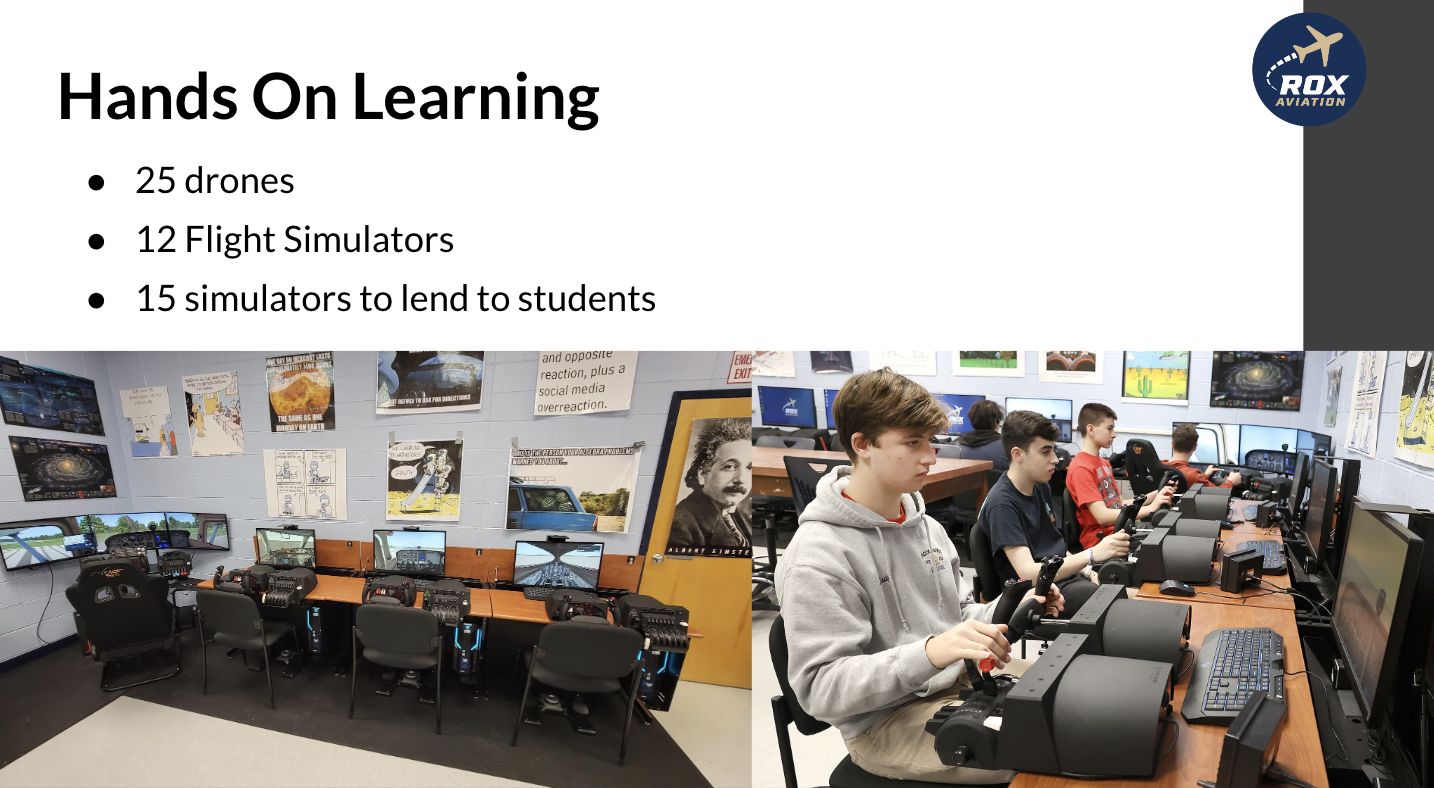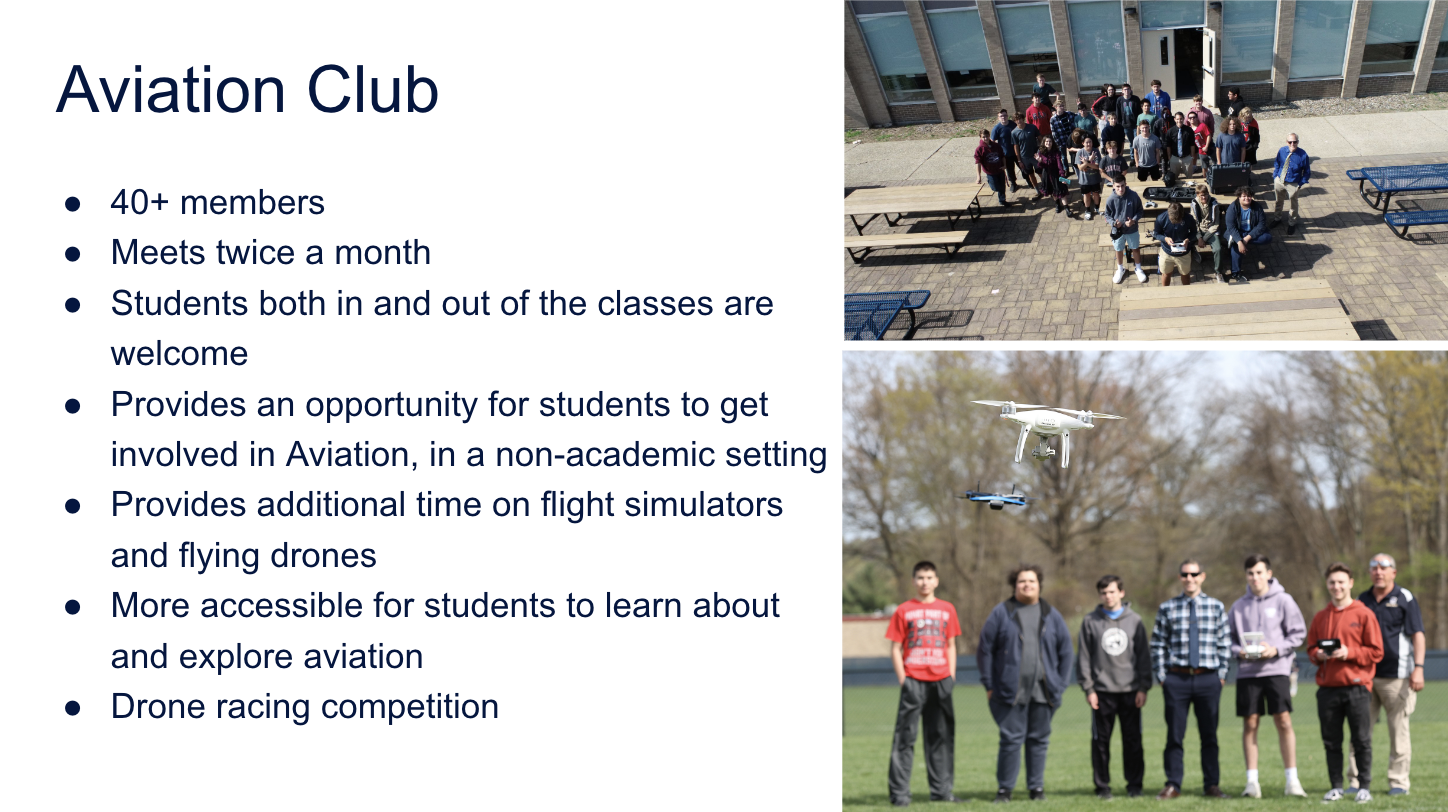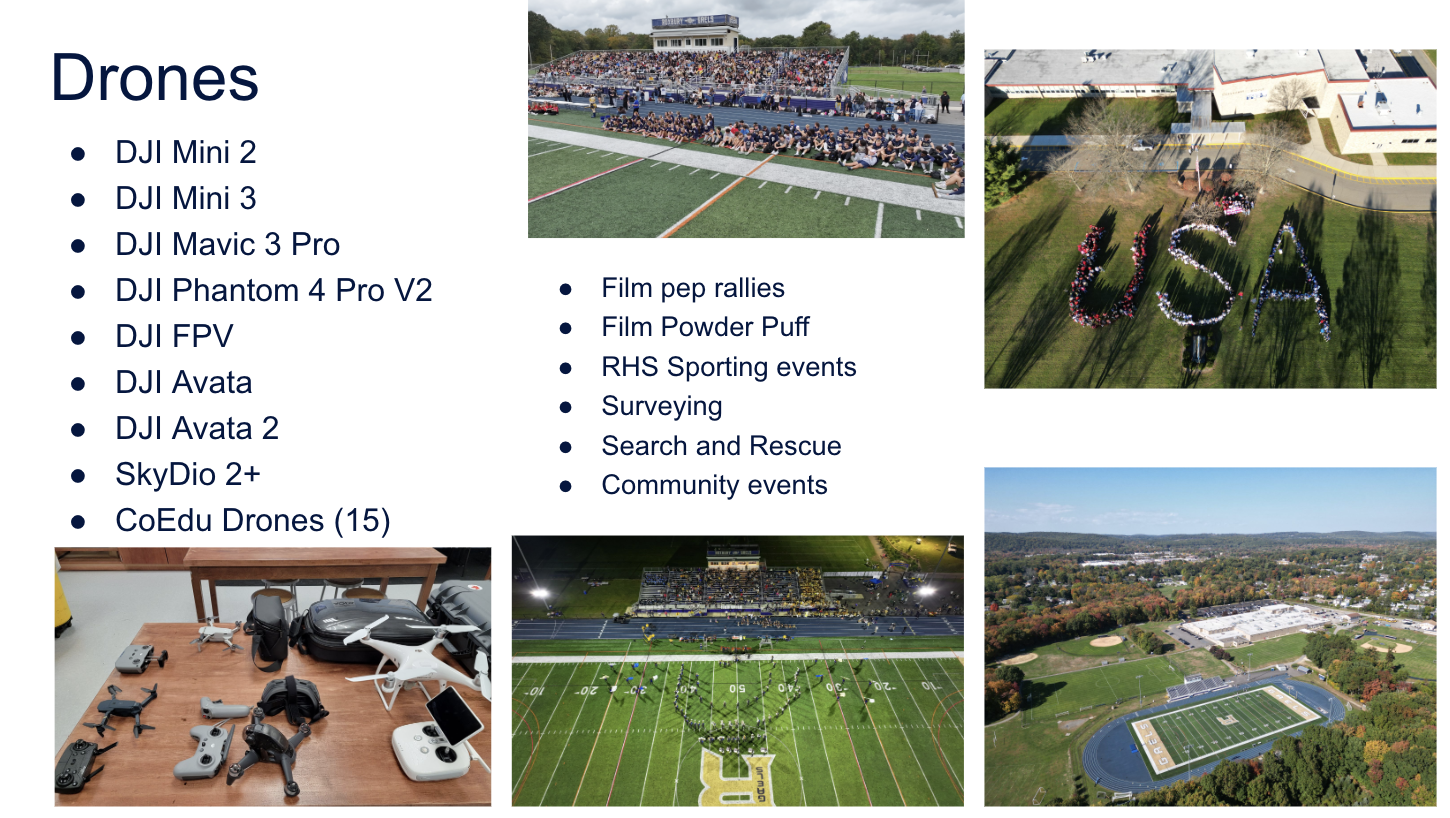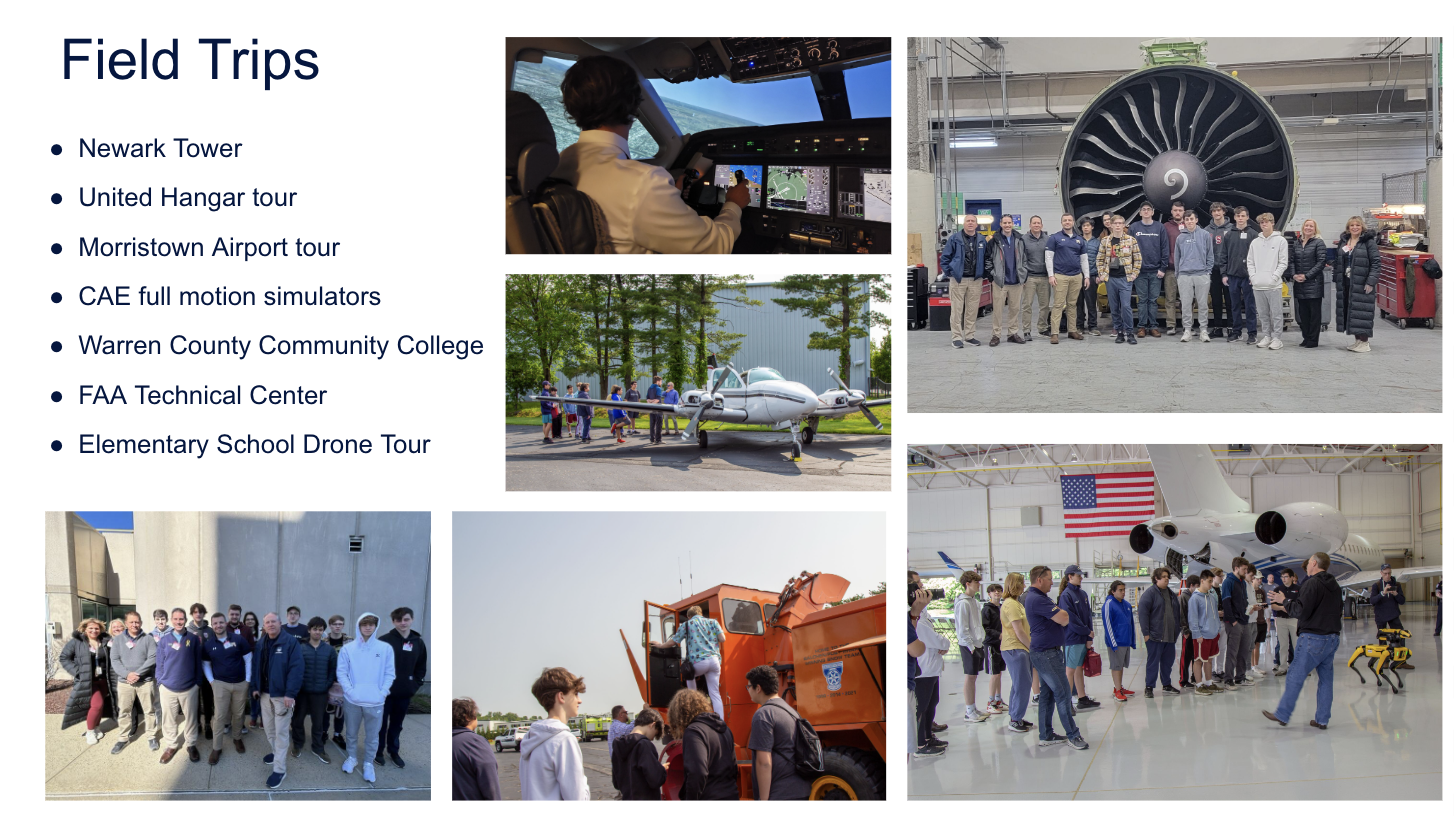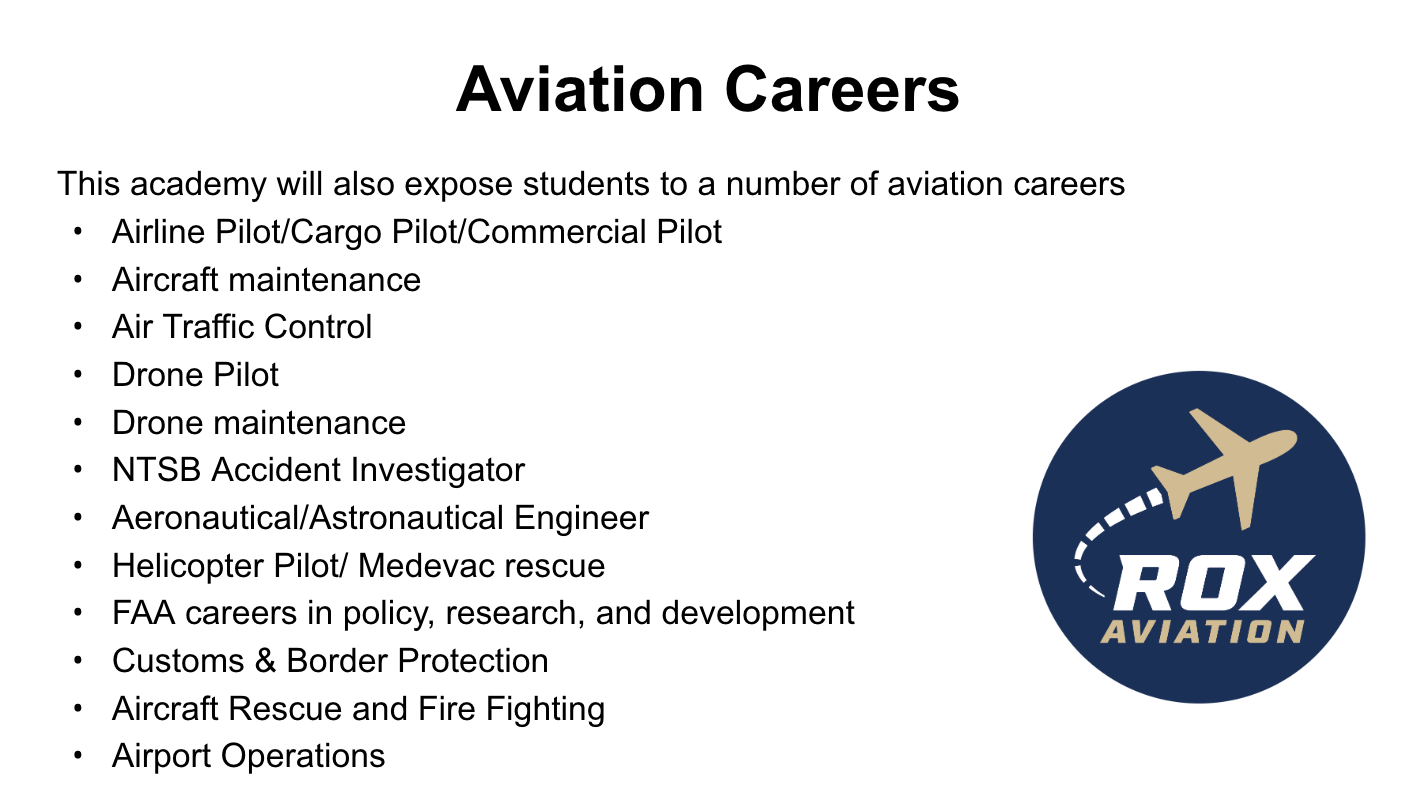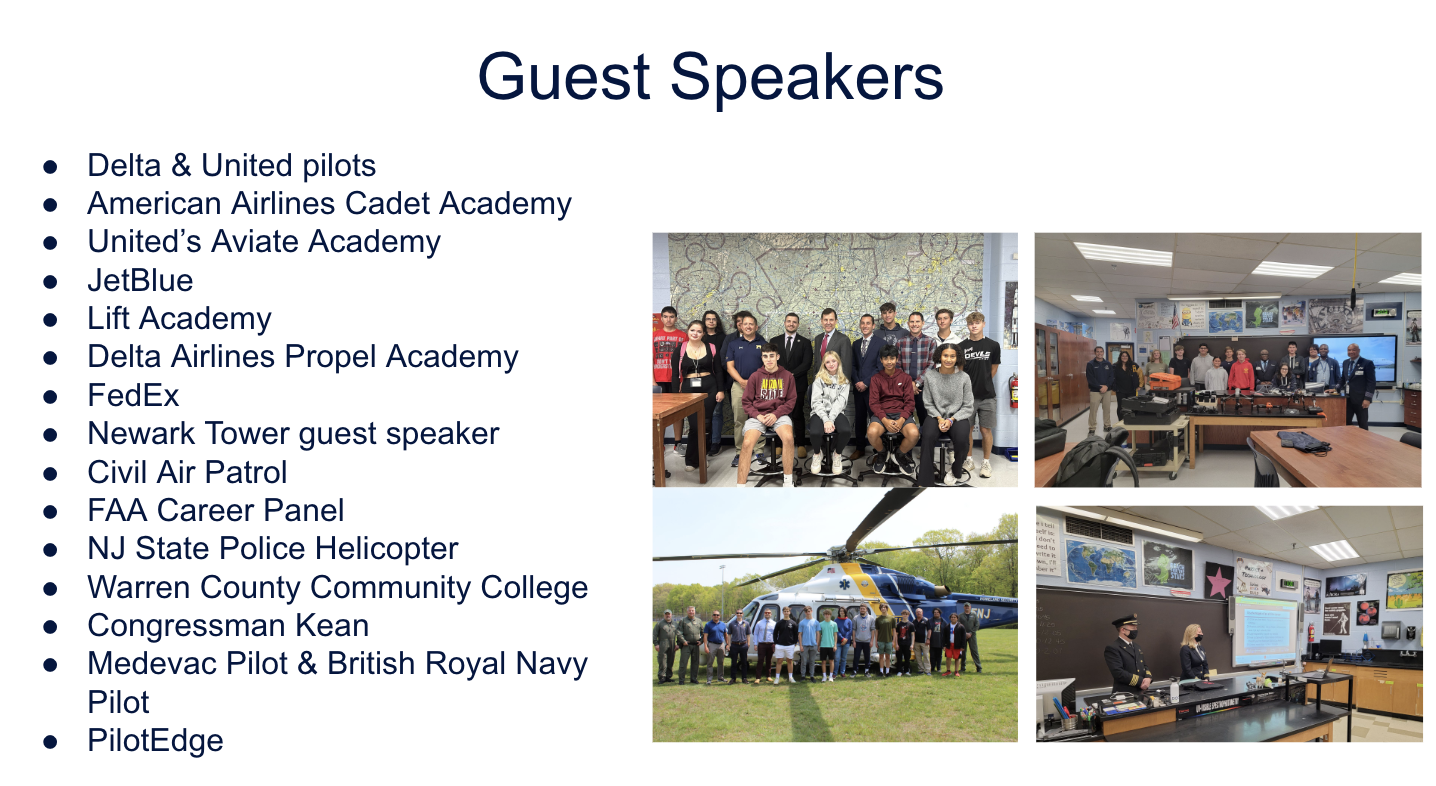- Roxbury Public Schools
- Aviation
Academies & Special Programs
Page Navigation

-
Roxbury High School offers students the opportunity to explore various aviation careers, including becoming an airline pilot, drone pilot, and aviation maintenance. In 2025 - 2026, Roxbury will run the first cohort of an Aviation Academy in partnership with Morris County Vocational School District. Students from surrounding districts will have the opportunity to attend RHS all four years, enrolling in classes that help them earn their Part 107 commercial drone license, pass the Private Pilot written exam, and explore many aviation careers. Click here for more information on the academy.
Questions?
- Contact Mike Gottfried (Aviation Instructor)
- mgottfried@roxbury.org
- 973-584-1200 x1280
Aviation Program
- Partners with Warren County Community College (WCCC) to provide 3 dual enrollment credits for earning a Part 107 drone license
- Dr. Seipp, Mr. Mawn, Mr. Blough, and Mr. Gottfried are all Part 107 drone licensed
- Mr. Gottfried earned an Advanced Ground Instructor (AGI) certificate through the FAA to sign off on students eligible for the FAA written exam
- Senior Option/Internship opportunities, include being an intern at Morristown Airport, WCCC, flight training at local flight schools, and more.
- All courses (Intro to Aviation, Pilot Pathway 1, Pilot Pathway 2, and Drone Technologies) receive Honors credits
- Students will fly indoor and outdoor drones, as well as fly on state-of-the-art flight simulators.
Program Success
- 138 students enrolled in the program since 2020
- 17 students have taken an intro flight
- 4 students have earned their Private Pilot License:
- Tyler Benedetto (Class of 2024)
- Luke Scaraggi (Class of 2023)
- Nick Terrero (Class of 2022)
- Tony Gonzalez (Class of 2020)
- 4 students have completed their Part 107 drone pilot’s license
- Yuriy Hrytsay (Class of 2025)
- Tyler Benedetto (Class of 2024)
- Zack O'Connor (Class of 2024)
- Connor Stark (Class of 2024)
Program highlights
- Helped establish an Aviation Career Night with Morris Hills & Morris Knolls, open to all NJ schools
- Hosted the first annual drone obstacle course competition with Hoboken High School in 2024
- Plan to acquire a donated aircraft and build an outdoor hangar classroom
- RHS students visit all four Roxbury elementary schools to teach the 4th grade students how to fly
- Participate in annual field trips including Morristown Airport, Newark Airport, and CAE (full motion simulators)
- Collaborate with surrounding aviation programs to discuss best practices

